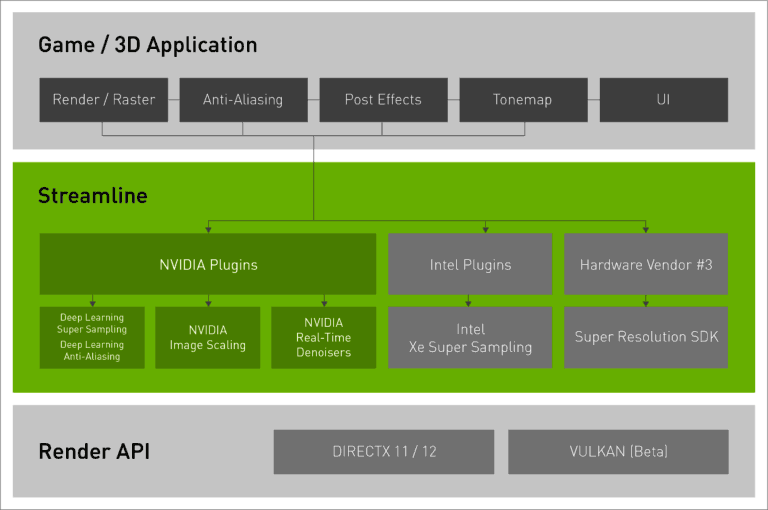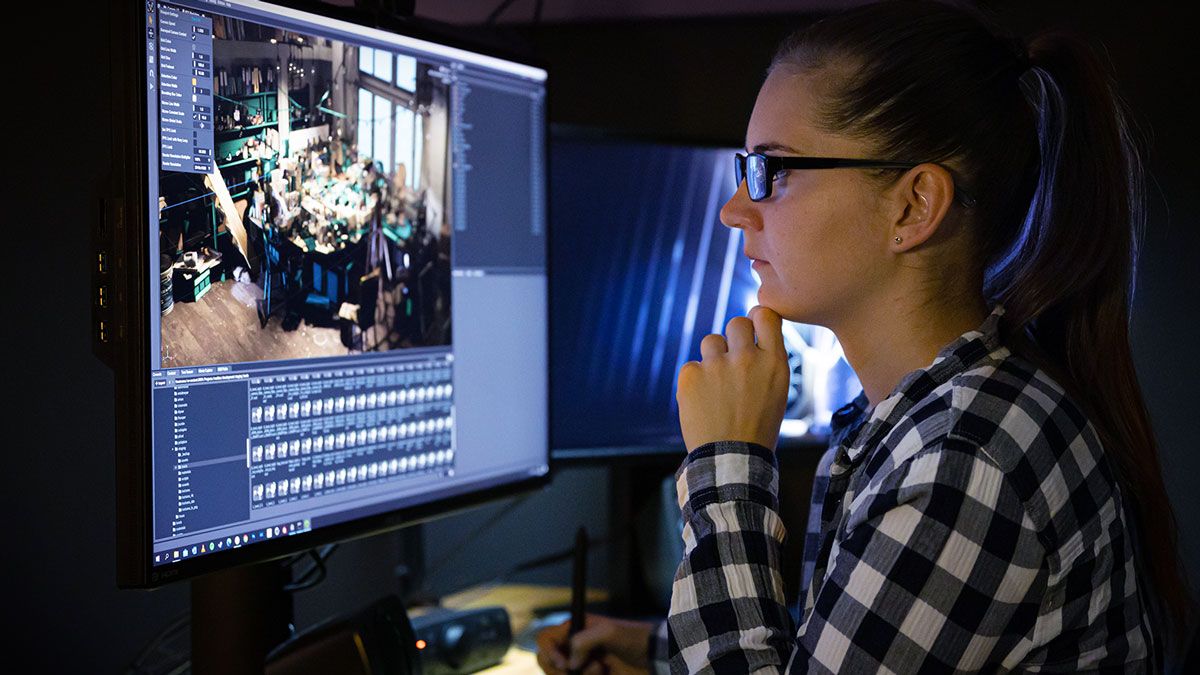https://www.techpowerup.com/forums/...as-starfields-exclusive-partner-on-pc.310582/
well, it seems that the game won't have RTX, DLSS nor XeSS.... :/ 'cos of an exclusivity deal with AMD.
https://www.techpowerup.com/forums/...as-starfields-exclusive-partner-on-pc.310582/
https://www.techpowerup.com/forums/...as-starfields-exclusive-partner-on-pc.310582/
well, it seems that the game won't have RTX, DLSS nor XeSS.... :/ 'cos of an exclusivity deal with AMD.
don't think so. Quite a few games with a exclusivity deal, like Dead Island 2, and others, never ended up supporting DLSS. These exclusive deals are crap, because no one cares about them. And the game won't be using DLSS, which imho is the best technology on PC in the last 15 years.Yep. Maybe the attention this title will receive will force AMD's hand in this and allow DLSS, who knows. They had the opportunity to shut the rumors down that they were making FSR2 exclusivity a requirement for their development deal, but their obvious waffling in their response to wccftech did the exact opposite. I can't really see their logic behind this, it's obviously not translating into market share and this is only going to draw negative responses.
don't think so. Quite a few games with a exclusivity deal, like Dead Island 2, and others, never ended up supporting DLSS. These exclusive deals are crap, because no one cares about them. And the game won't be using DLSS, which imho is the best technology on PC in the last 15 years.
AMD kind of confirmed this a year ago, when NVIDIA developed the Streamline tool, which helps developers add all upscaling tech in a very simple way. NVIDIA offered both AMD and Intel to officially join the tool.but AMD has all but confirmed that with their awful response when finally being asked point-blank
"Instead of manually integrating each SDK, developers simply identify which resources (motion vectors, depth, etc.) are required for the target super-resolution plug-ins and then set where they want the plug-ins to run in their graphics pipeline," explains Nvidia. "Making multiple technologies easier for developers to integrate, Streamline benefits gamers with more technologies in more games."

Nvidia already has Intel onboard. In the diagram above you can see Intel plugins are being prepared for Streamline, and this will enable Intel XeSS with just a modicum of effort from devs who have the framework ready, especially compared to pre-Streamline days. Last but not least, Nvidia has left the door open to "Hardware Vendor #3," (aka, He Who Must Not Be Named, aka AMD) to play ball and produce a plugin, to speed integration of their super-resolution technology alongside the green and blue team choices.

Intel joined on board, but AMD didn't, confirming their intent not to play ball, or support an "open" approach to upscaling
No, its not. At what point are we gonna get over the closed tech bullshit ? Its been 5 years of existence for DLSS, hundreds of games, constant evolution of it, 80% of the market uses nvidia, every gpu they manufacture supports it. Is 10 years gonna be enough to get rid of the hairworks/physx horsehit some cling to ? 15 years ? 20 years ? No, people should not be happy that they get the "open" fsr (which is only open because almost nobody buys amd cards so anything else was not an option) and it complete shit in comparison to the point that you'd rather use native and lower performance or wait for upgrades than use itThis is 100% GameWorks all over again.
/rant.
I'll give this one reply but I can see this spiraling in a really stupid direction. Suffice it to say, I don't even understand the point you are trying to make here. It *is* closed source and it *is* the exact same situation as other closed source stuff like gameworks... that's just a fact. Why would it being around for some amount of time change anything about the fundamental argument about how closed source stuff stifles innovation and is pretty much bad for everyone in the long run?No, its not. At what point are we gonna get over the closed tech bullshit ? Its been 5 years of existence for DLSS, hundreds of games, constant evolution of it, 80% of the market uses nvidia, every gpu they manufacture supports it. Is 10 years gonna be enough to get rid of the hairworks/physx horsehit some cling to ? 15 years ? 20 years ?
Why would it being around for some amount of time change anything about the fundamental argument about how closed source stuff stifles innovation
To be clear, I understand the user experience argument on this point
there is absolutely nothing wrong with a developer saying that they are not going to include arbitrary pieces of closed source software in their renderer and it's frankly ridiculous to suggest otherwise.
Or could it be the average multiplatform developer already has a FSR solution in place for the console port(s), and it would require minimal effort to keep it in the PC version?Nothing wrong with that but is the average game developer really anti-DLSS/XeSS
While I agree that open source is best, what would be the point of making an already highly optimized piece of software that is targeted at specific hardware open source? DLSS only runs so well because its a symbosis of hardware (tensor cores) and software which in my eyes is a heck of alot innovation, DLSS kickstarted this whole upscaling race in the first place. If DLSS would be open sourced, I don't think anything would change. It would not run well on incompatible hardware because shader cores are too slow at matrix multiplication in real time, just look at how XeSS runs without HW-acceleration. Same story here.I know this is going to create a shitstorm but it needs to be said again: the most "open" approach to upscaling is making the algorithm open source. It's borderline ridiculous that people feel it's okay to bully game development companies into using arbitrary closed source tech that forms a major portion of the rendering pipeline and yet feel no similar need to pressure the IHVs into actually standardizing the techniques. And no, a black box where a library can take (whatever input) and produce (whatever output) is not a standard.
If the claim is that DLSS/XeSS is so foundationally important to the experience that it must be present in a PC game then it should be an open technique, just like FSR is. Stop falling for any of the bullshit excuses from the IHVs on this. It's ridiculous that they have somehow managed to flip the narrative when they are the ones creating this exclusivity nightmare in the first place.
To be clear, I understand the user experience argument on this point, but make no mistake that you are being manipulated and weaponized by the actual bad actors in this situation. Exclusivity deals aside, there is absolutely nothing wrong with a developer saying that they are not going to include arbitrary pieces of closed source software in their renderer and it's frankly ridiculous to suggest otherwise. This is 100% GameWorks all over again.
/rant.
I am all for open source, but from Todd Howard's words, this isn't a case where the developer uses an open source tool to simplify development. He said that they are working hard -PR stuff- closely with AMD engineers so the game looks incredible with FSR2.While I agree that open source is best, what would be the point of making an already highly optimized piece of software that is targeted at specific hardware open source? DLSS only runs so well because its a symbosis of hardware (tensor cores) and software which in my eyes is a heck of alot innovation, DLSS kickstarted this whole upscaling race in the first place. If DLSS would be open sourced, I don't think anything would change. It would not run well on incompatible hardware because shader cores are too slow at matrix multiplication in real time, just look at how XeSS runs without HW-acceleration. Same story here.
It's also not about bullying developers into integrating DLSS, it's about raising awareness that AMD is preventing a better technology from being used in their sponsored games. This is not baseless conjecture at this point, there is a very, very clear pattern with how these AMD sponsored games lack DLSS and that is hurting the PC gaming industry as a whole. Instead of making sponsored games better, a partnership with AMD makes them significantly worse. And I'm sure you are aware that integrating DLSS into Unreal Engine games is as easy as clicking a button. Guess what - these Unreal Engine games sponsored by AMD lack DLSS as well. Even though its really easy to integrate. To add further fuel to the fire, the statement AMD made on Wccftech was very revealing.
So yes, I'm very glad AMD finally gets called out on this.
Guess that includes UE 5 not being open source and stifling innovation to the detriment of developers and gamers in the long run. On topic is TSR open source?It *is* closed source and it *is* the exact same situation as other closed source stuff like gameworks... that's just a fact. Why would it being around for some amount of time change anything about the fundamental argument about how closed source stuff stifles innovation and is pretty much bad for everyone in the long run?
I get that you might not care because you only care about your experience with a given game. That's totally fine, but it is irrelevant to the point being made.
No it isn't. if you actually took the time to look at the repository, most of the functionality behind XeSS gets obfuscated by precompiled library files and that goes for the DP4a implementation as well ...btw, XeSS is open source.
I know this is going to create a shitstorm but it needs to be said again: the most "open" approach to upscaling is making the algorithm open source. It's borderline ridiculous that people feel it's okay to bully game development companies into using arbitrary closed source tech that forms a major portion of the rendering pipeline and yet feel no similar need to pressure the IHVs into actually standardizing the techniques. And no, a black box where a library can take (whatever input) and produce (whatever output) is not a standard.
If the claim is that DLSS/XeSS is so foundationally important to the experience that it must be present in a PC game then it should be an open technique, just like FSR is. Stop falling for any of the bullshit excuses from the IHVs on this. It's ridiculous that they have somehow managed to flip the narrative when they are the ones creating this exclusivity nightmare in the first place.
To be clear, I understand the user experience argument on this point, but make no mistake that you are being manipulated and weaponized by the actual bad actors in this situation. Exclusivity deals aside, there is absolutely nothing wrong with a developer saying that they are not going to include arbitrary pieces of closed source software in their renderer and it's frankly ridiculous to suggest otherwise. This is 100% GameWorks all over again.
/rant.
